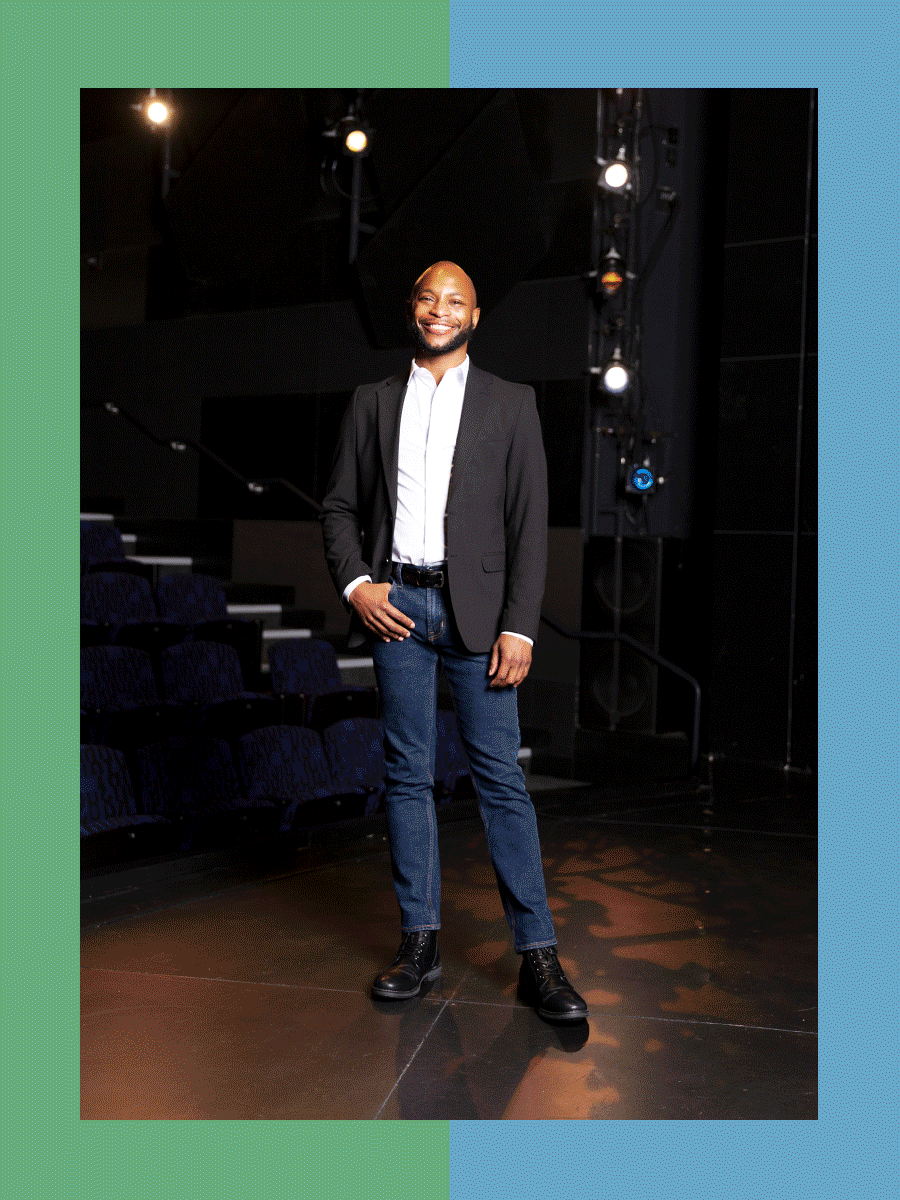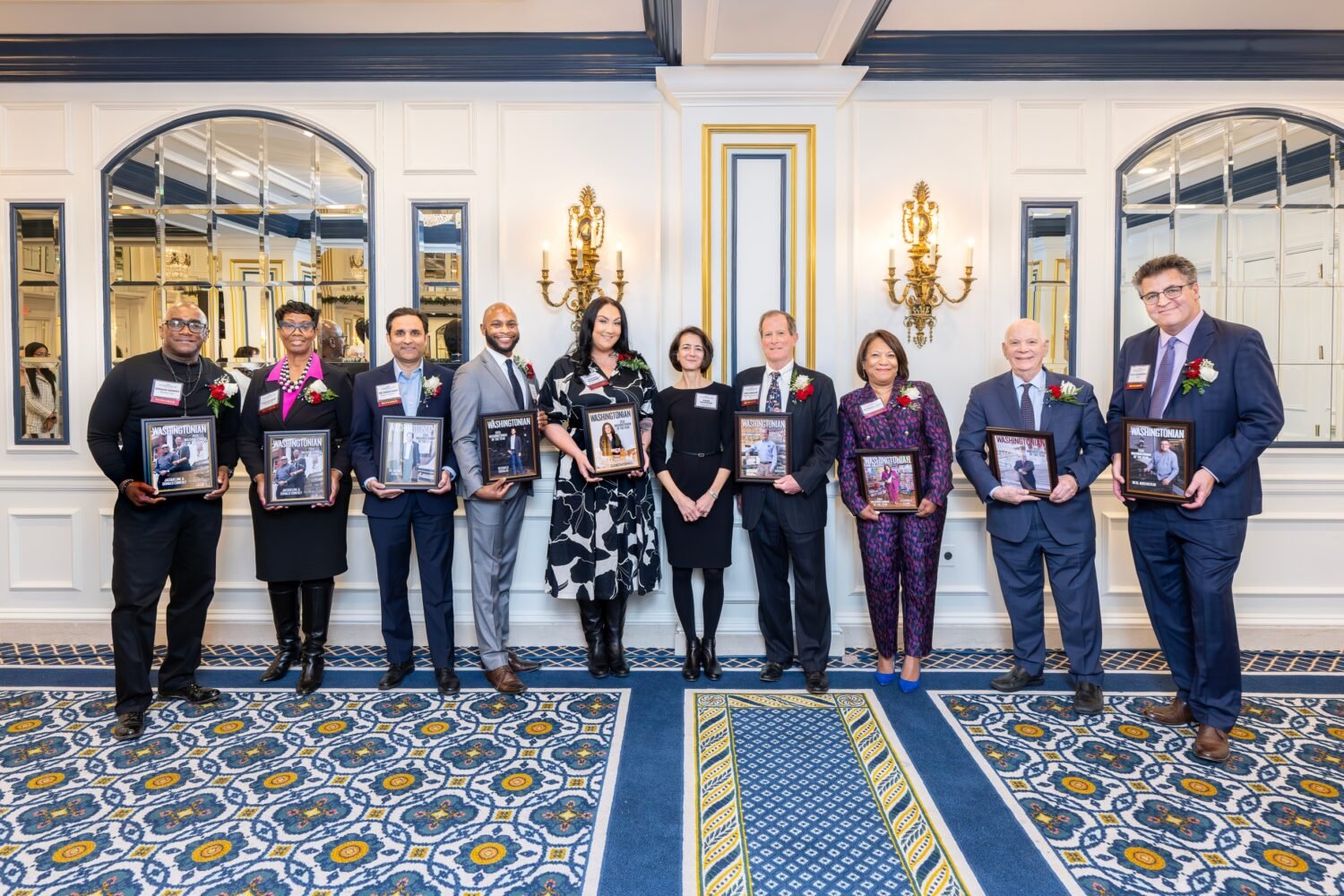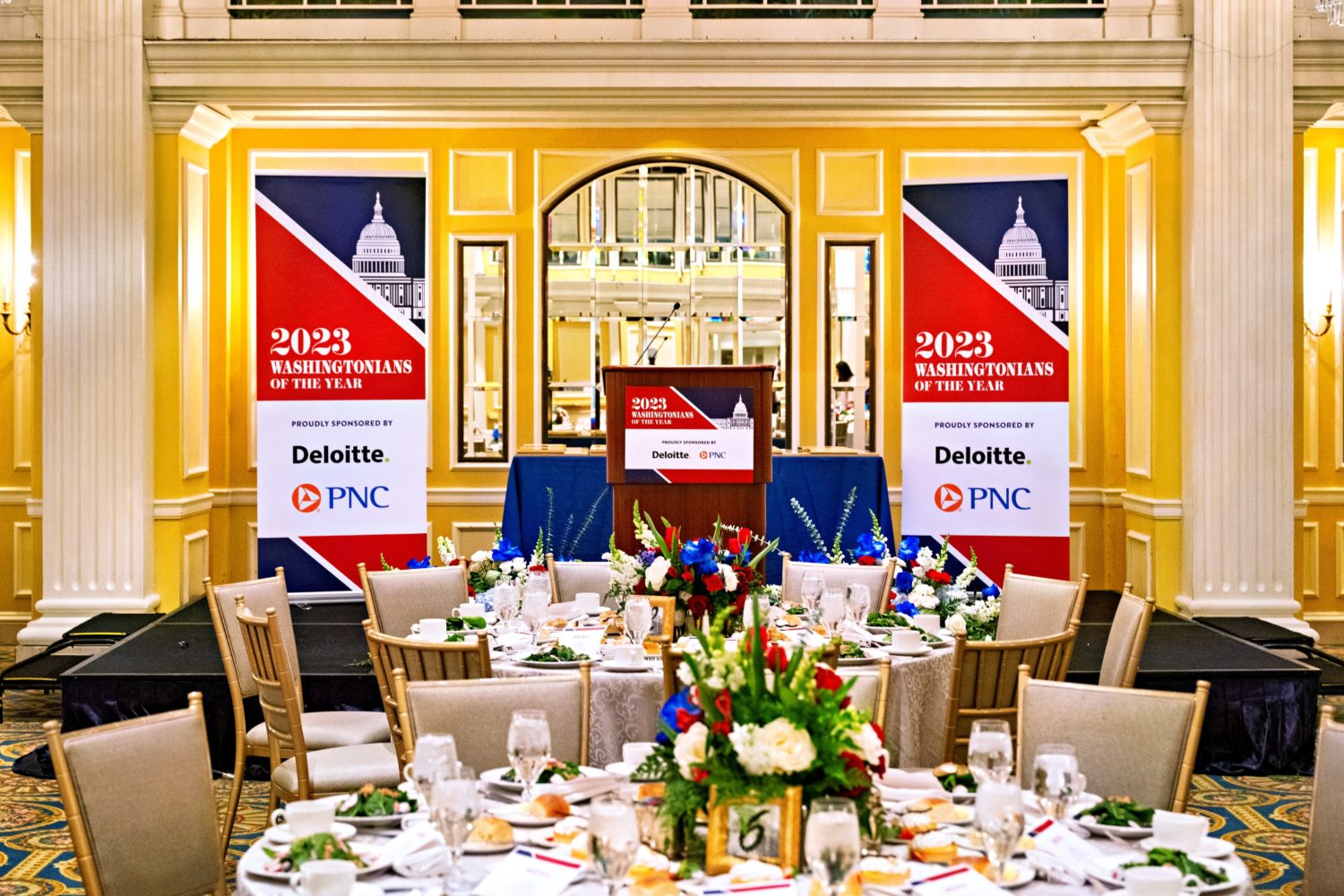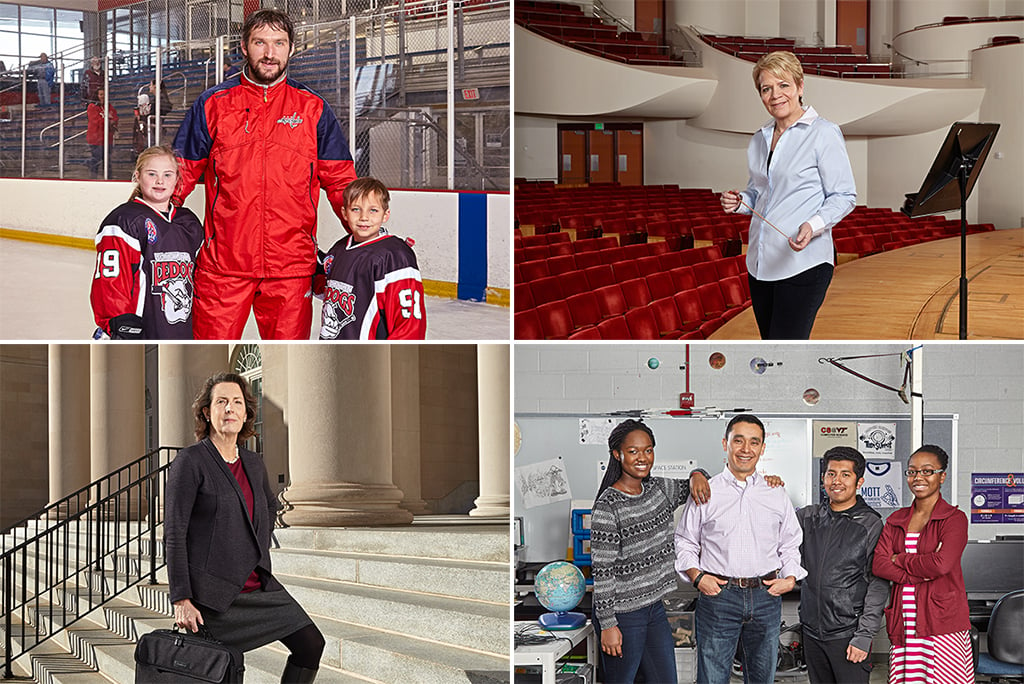Contents
Steve
Back to TopAbraham
President and founder, Wilderness Leadership and Learning
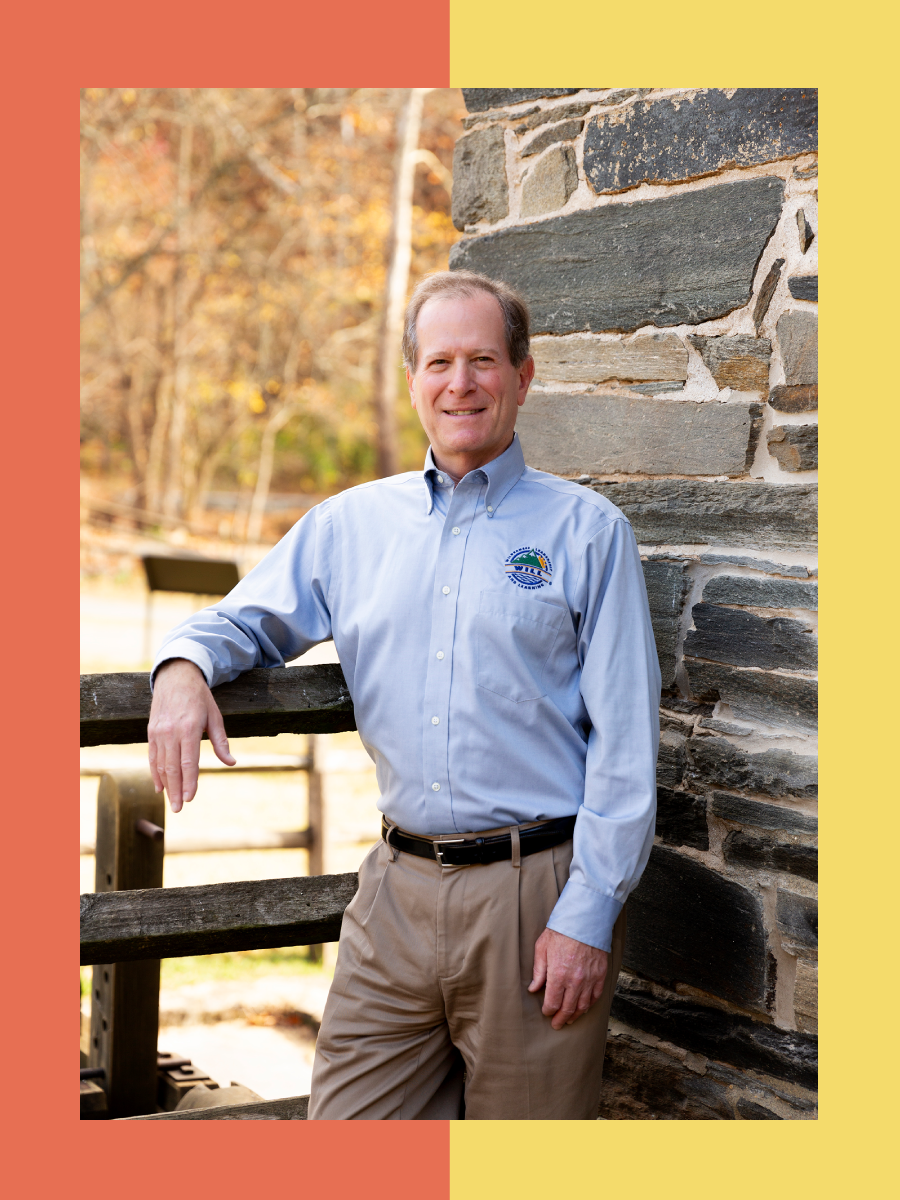
In 2001, Steve Abraham took a break from his career as a trial lawyer in DC to try something new: a multi-week wilderness-training program in Wyoming’s Wind River Range with the National Outdoor Leadership School.
He wasn’t an avid outdoorsman—in fact, he says he was the least experienced person on the mountain—but the experience proved transformative. One evening, he hiked up alone to the ridge line, where he rested amid an alcove of ponds and trees. “For the first time in my life, every care, every issue was gone,” says Abraham. “I felt truly at peace.”
An epiphany hit: What if he could provide a similar experience to people who might not have access to wilderness opportunities?
“Look, I’m not going to say that God spoke to Abraham on the mountain, but it was kind of like that,” he says, half joking. When he returned home, Abraham left his 16-year law career to pursue what felt like a higher calling.
Jotting ideas on a manila envelope, he landed on a name: Wilderness Leadership & Learning, or WILL. He envisioned a program that offered opportunities not usually available to under-resourced students in the Washington area—spring-break trips on the Chesapeake, canoeing on the Anacostia River, a seven-day backpacking trip in southwest Virginia.
Since WILL’s founding in 2003, nearly 600 students have had their own transformative moments in nature, such as holding a fish for the first time and boating alongside dolphins. Remarkably, the nonprofit reports that 100 percent of its graduates go on to finish high school, too. That success, Abraham suggests, stems from WILL’s focus not only on outdoor experiences but on building essential life skills like leadership, confidence, stewardship, and cultural awareness: “I wanted to use the wilderness as a learning crucible, but I wanted it to be much more than that.”
The program covers financial literacy, nutrition coaching, goal-setting, and even simple reminders to say “please” and “thank you.” It’s a serious commitment: Participants devote about 355 hours to WILL, including that seven-day, phone-free backpacking trip in Virginia.
“They’re challenged in different ways,” says Abraham. “For some, it’s three days of financial literacy. For others, it’s camping. They’re pushed out of their comfort zones and come to understand that if they’re willing to go there, they can achieve anything.”
Back to Top
Neal
Back to TopAugenstein
Reporter, WTOP

Neal Augenstein’s distinctive voice has been a feature on local airwaves for almost 30 years. The fact that he’s on the radio at all is even more remarkable than his longevity. At some of his first broadcast jobs, he says, bosses told him, “You’re a good journalist, but not on air.” WTOP was willing to take a chance on the New Haven–area native as long as he visited a vocal coach to help him tame his tri-state vowels, lisp, and handling of the letter L. “I know that I sound different than other reporters on the radio or on TV,” Augenstein says. “When I was growing up, it was the days of Ted Baxter with the perfect baritone. Thankfully for me, that has changed over the years. The idiosyncrasies that people have in their voices is more acceptable.”
Augenstein’s unconventional set of pipes has helped him forge a tight connection with listeners, a fact that became clear in 2022, when he shared that he’d been diagnosed with lung cancer. A lifetime nonsmoker—he says he’s “almost obnoxiously” antismoking—Augenstein reported last year on his journey toward becoming a NED, someone with “no evidence of disease.” He maintains that status by taking one osimertinib pill daily, the side effects of which include needing a daily nap. Talking about cancer “helps me come to grips and try to understand a little bit more about what is going on with my own health,” the 65-year-old says. “And the support and the well wishes, it is unbelievable.”
Part of a vanishing breed of “general assignment” reporters, Augenstein covers everything from traffic to local history to aquaculture—anything that touches his listeners’ lives. He still wakes every day at 3:30 am and files his first story around 6. He knows where to park his RAV4 to get natural sound for a story about the Beltway (the top of a parking lot in Tysons) and mastered the art of reporting via iPhone when most reporters “needed a caddy to go cover a story.” His second smartphone even ended up in the Newseum as a result. Reporting on Washington area, Augenstein says, “is just a wonderful way to spend my life.”
Back to Top
Stuart
Back to TopBernstein
President, Bernstein Family Foundation
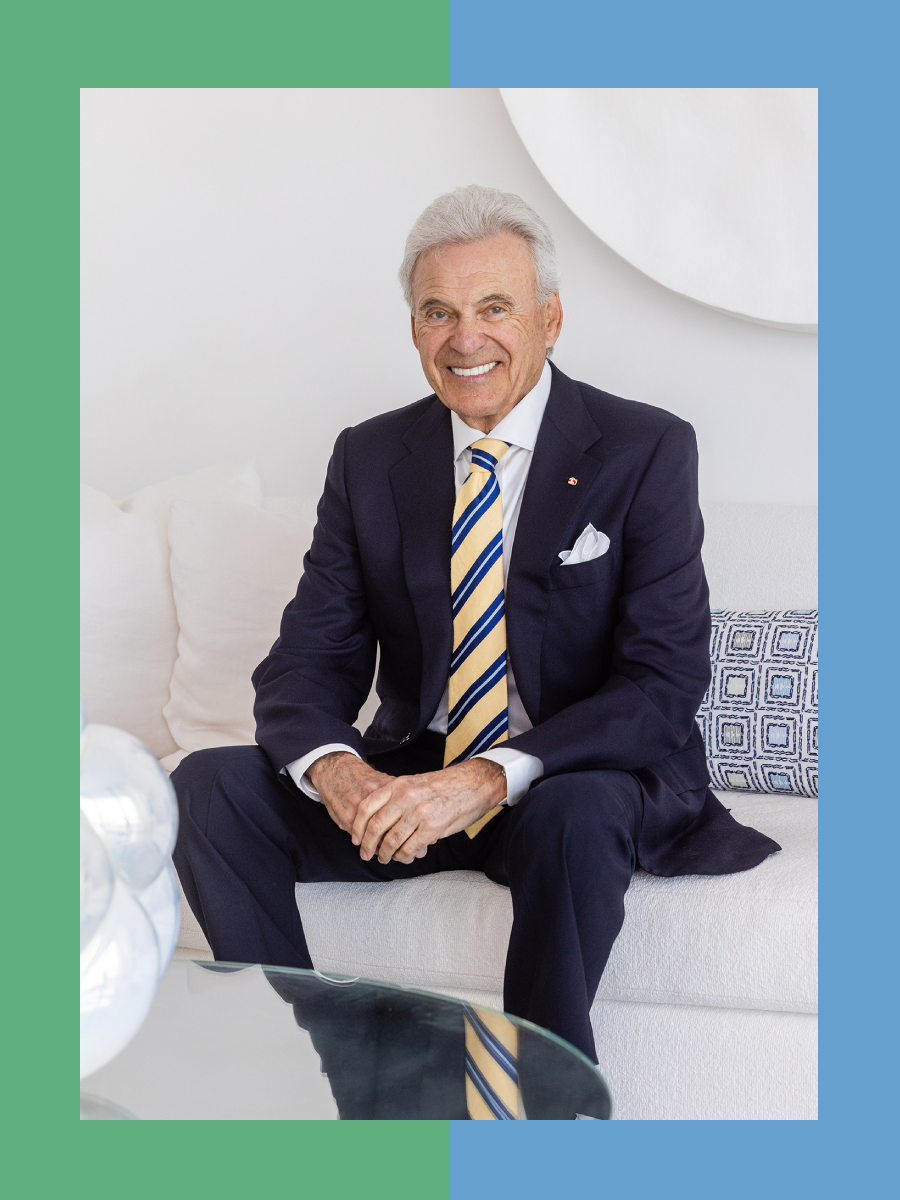
This city, family members say, is in his bones. Stuart Bernstein grew up in Shepherd Park and Kalorama. Attended American University. Married his childhood sweetheart, also a native. Took over the family business from his father, Leo Bernstein, a DC-born son of Lithuanian immigrants, who built a commercial real-estate company here in the 1930s.
Almost a century later, Bernstein is chairman emeritus of that thriving business—the Bernstein Companies, now run by son Adam—and president of the foundation Leo started in 1952 to give back to the city where he prospered. Washington’s landscape is dotted with not only projects developed by the family business but also institutions, nonprofits, artists, and more supported by its philanthropic arm.
“I’ve had a long, blessed, full 86 years of life in this great city,” says Bernstein, a former US ambassador to Denmark. “One of the things I’m most proud of, that I learned from my parents, was the importance of giving back.”
Like the business, the Bernstein Family Foundation, which has given away upward of $18 million over the last two decades, is a family affair run by Leo’s three children and seven grandchildren. Giving has fallen into three categories: American democracy; arts and culture; and Jewish causes. Recipients have ranged from the Kennedy Center to antipoverty initiatives to synagogues.
The family is planning a major gift for the National Mall in 2026—in honor of the nation’s 250th anniversary—with the goal of giving away all the foundation’s money by 2030. “It’s a moment to be bold,” says niece Ami Becker Aronson, the foundation’s executive director. “We’ll continue to be philanthropic, but individually, not as a collective.”
Outside the foundation, Bernstein’s personal philanthropy and service have followed institutions close to his heart, such as American University and MedStar Georgetown University Hospital—as well as politics. The longtime GOP donor was appointed to the embassy in Denmark by George W. Bush.
Cherishing that posting—especially momentous because it coincided with 9/11—he’s active in the development of the new National Museum of American Diplomacy in Foggy Bottom. “There are 400 museums, or more, dedicated to the military and war—there’s not one dedicated to diplomacy,” he says.
“He spreads his love in many places,” says Bernstein’s niece, “and has left an indelible mark on this city.”
Back to Top
Ben
Back to TopCardin
US Senator from Maryland
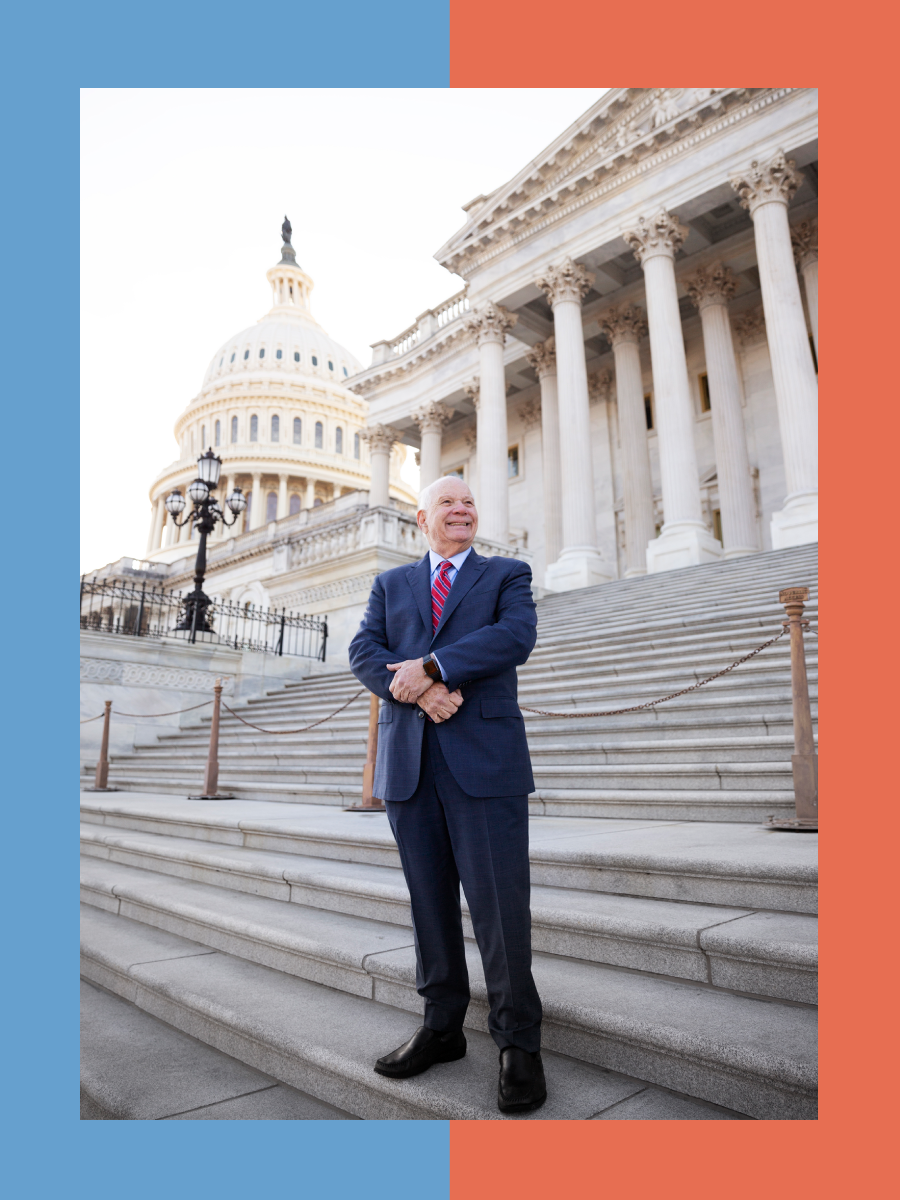
Senator Ben Cardin’s trademark civility and pragmatism may seem out of fashion in today’s hyper-charged politics, but they’ve served the Maryland Democrat well through 58 years of public service, 18 elections, and a record of accomplishments on issues ranging from the Chesapeake Bay to international human rights.
“I have to pinch myself,” says Cardin, who brings his career as an elected official to a close this month. “I’m feeling really satisfied and very blessed. It’s been an incredible opportunity the people of Maryland have given me, and I’m just very proud of representing them.”
Like many of the state’s most successful politicians, Cardin worked his way up the system, beginning in 1966 when the 23-year-old Baltimorean, still a law student, won a seat in the Maryland General Assembly, following in the footsteps of his father and uncle. He rose to become speaker of the House of Delegates before being elected to the US House in 1986 and, later, the US Senate.
“He has been Maryland through and through,” says Maryland congressman Jamie Raskin. “He has demonstrated great devotion to the state and the bay, the land and the people.”
Beyond his work securing federal funds to restore and protect the Chesapeake, Cardin has led the way on expanding preventive healthcare under Medicare, increasing retirement security, helping small businesses survive Covid, and many other efforts steeped in his embrace of the Jewish value of tikkun olam, repairing the world. “It is my North Star,” he says. “Helping our community and giving to those who are less fortunate—that was instilled in me at a young age.”
The same ethos informed his foreign policy. Chair of the Senate Foreign Relations committee, Cardin authored, with the late senator John McCain, a landmark law that led to the sanctioning of human-rights violators abroad.
Perhaps his greatest imprint on Washington has been his demeanor: collegial, honorable, serious-minded, “the epitome of what it means to be a public servant,” as Maryland governor Wes Moore has called him. In Cardin’s 38 years in Congress, he’s had only two chiefs of staff. Some of his greatest victories were forged with Republicans.
“I’m proud of the manner in which I have conducted my responsibilities as a legislator,” Cardin says. “I hope my legacy is that people recognize that ‘compromise’ is not a bad word. It’s how our country was formed.”
Back to Top
Jacqueline & Donald
Back to TopConerly
Founders, Recovery Café DC
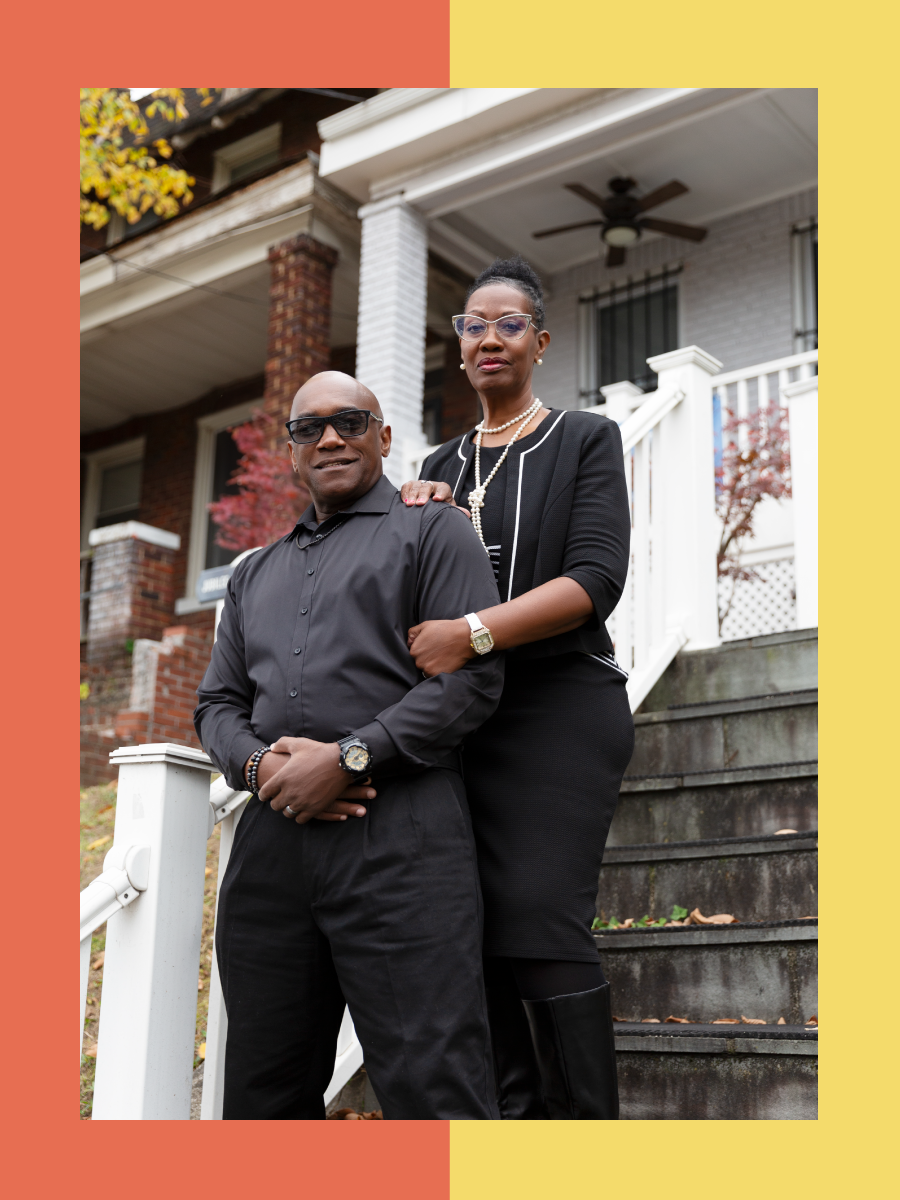
In 2008, Donald Conerly was recently released from jail, living at the 801 East Men’s Shelter in Southeast DC, and working to kick the drug addiction he’d struggled with for more than 35 years. Being incarcerated, he now says, was one of the best things to happen to him: “I started reading my Bible, praying, talking to God, focusing on my recovery while in jail.” What started as solitary prayer turned into a fellowship of more than 75 men in the DC jail, all focused on channeling their faith into a better life upon their release.
Conerly’s work continued on the outside—he hosted meetings every Friday at Bethlehem Baptist Church. The organization grew, leading to collaborations with other DC groups such as the career center Jubilee Jobs. It’s there that Donald met his future wife, Jacqueline, then the nonprofit’s deputy director. Together, they nurtured his dream of expanding the fellowship into a place where people could tackle addiction and stay on track. Recovery Café DC was born in 2018.
The nonprofit offers resources to those in recovery programs as well as anyone experiencing violence, homelessness, or mental-health issues. In addition to small support groups called Recovery Circles, Recovery Café offers art therapy, prayer sessions, and events specifically for women experiencing hardship. It currently serves 60 members and has provided 1,847 hours of Recovery Circles and counting. According to the nonprofit, 100 percent of members in addiction recovery have said that Recovery Café helped them avoid relapse.
“If you’ve lived life, somewhere you’ve encountered something you need to overcome,” says Jacqueline Conerly, who grew up in Ward 8. “Our space is a space where everybody’s embraced, everybody’s welcome.”
Their organization currently operates out of Jubilee Jobs, but with the help of $2.5 million crowdsourced from the community, the Conerlys recently bought a building in Southeast DC to expand Recovery Café’s work. The 8,000-square-foot facility—including a full kitchen, classroom spaces, and 42 affordable-housing units—is slated to open by the end of 2025. It’s steps away from a methadone clinic and Calvary Women’s Services.
“My heart, my passion, is around women, because I come from women who have a lot of traumatic stuff in their backgrounds,” says Jacqueline, who also volunteers as a chaplain at the DC Jail. The life experiences she and Donald have had, she says, make them “wounded healers.”
Back to Top
Reginald
Back to TopDouglas
Artistic director, Mosaic Theater Company
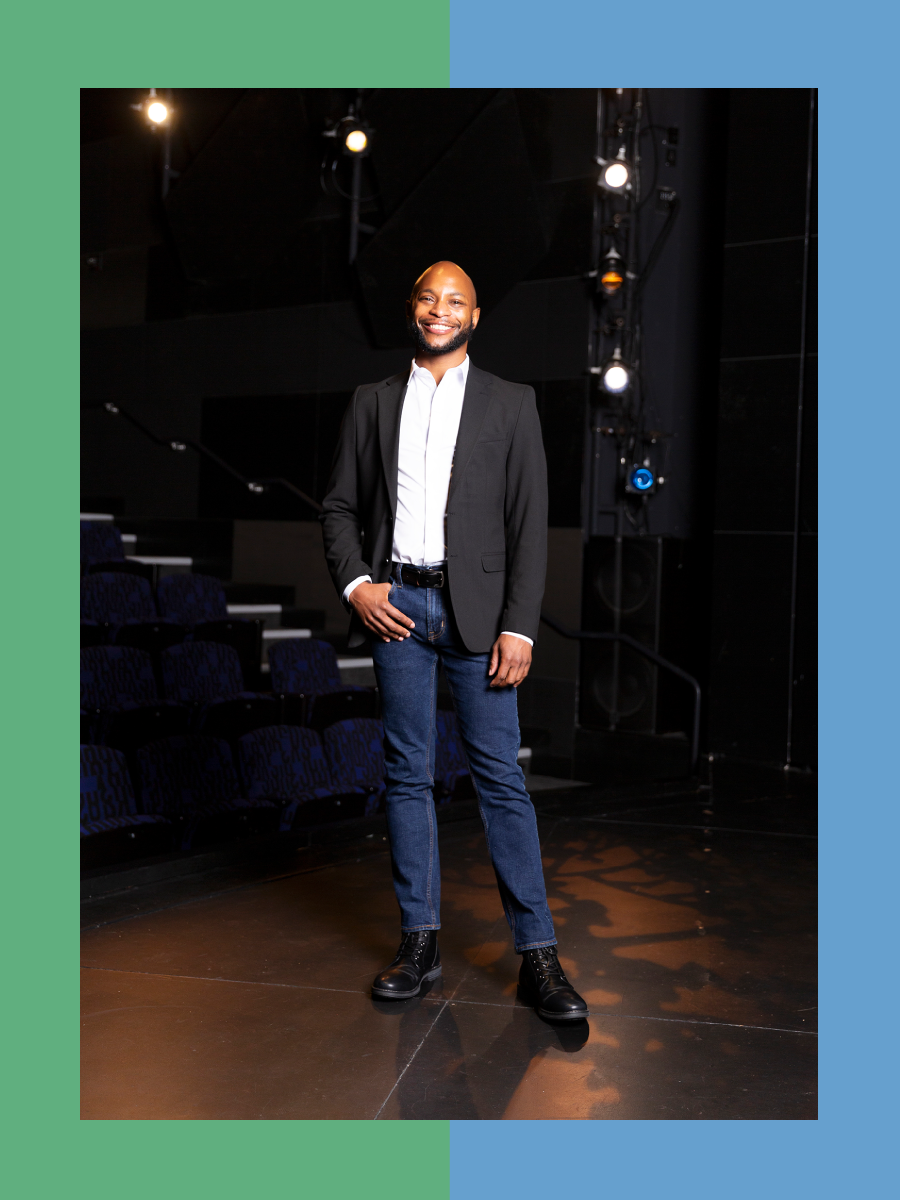
The joy Reginald Douglas saw in the gospel singers and dancers at his hometown church in Queens kindled a passion for performance and community. But it was a church theater camp that helped direct Douglas on his path in life. “I remember I didn’t want to sing, I didn’t want to dance, but I was in the cast and I would go, ‘Why that?’ and ‘Why that?’ ” he recalls. “Miss Elaine said, ‘Reggie, you’re a director.’ ”
Douglas has since directed more than 70 musicals, plays, and multimedia projects for more than 50 theater companies and festivals.
Now artistic director at Mosaic Theater Company, Douglas first moved to DC in 2005 to attend Georgetown University. He’d planned on a political career but soon realized it might not give him the hands-on impact he wanted to generate in the world. It wasn’t until he enrolled in a political-theater class taught by Derek Goldman—currently a director at Mosaic—that he realized his two favorite subjects could intersect. “That was the aha moment,” he says. “I could combine my love of theater with my love of civic engagement and use theater as a catalyst to make the change I want to see in the world.”
Since joining the company on H Street, Northeast, in 2021, he has spearheaded new and contemporary reimaginings of true Black stories, including Bars and Measures, The Till Trilogy, and Mexodus—a hip-hop musical about the Underground Railroad. For Douglas, these shows spotlight underrepresented narratives and open the door for more artists of color to secure main roles.
In addition to his work onstage, Douglas created Mosaic’s Reflection Series—a community program that explores themes of the company’s plays via neighborhood panels, concerts, and readings. He has also instituted a matinee program that brings seniors and youth together for post-show conversations and has worked with schools to launch a high-school playwriting contest.
“I want to make the company a place where different cultures and perspectives come together through the art we make, but also in the audience,” says Douglas. “To me, that’s what a mosaic is—a collection of our different parts.”
Back to Top
Basim
Back to TopKhan
CEO, Neighborhood Health
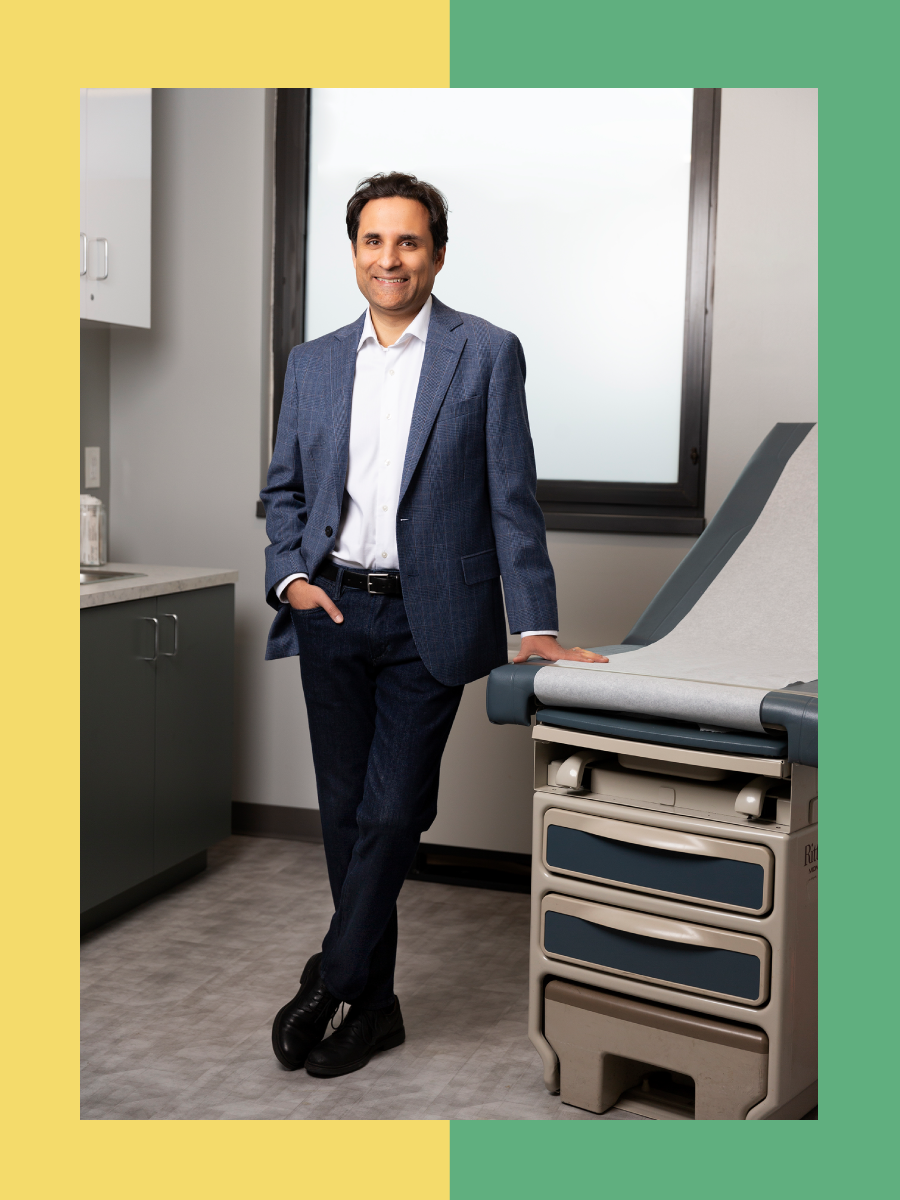
Growing up in Pakistan, Basim Khan grew frustrated by the notion of healthcare as a privilege. He saw impoverished communities suffering from treatable, even preventable ailments—but because they couldn’t pay for care, they couldn’t get better: “I realized that when I grew up, I not only wanted to be a doctor, but a doctor for the underserved.”
Khan, who was born in the US and moved back for college, thought he’d join Doctors Without Borders. But as he rotated through public hospitals during med school, he says, “I realized that here in the US—which at the time was a surprise for me—not everyone had access to healthcare.”
When he finished his residency, a Google search led him to Alexandria Neighborhood Health Services, or Neighborhood Health, as it’s known today—Northern Virginia’s first federally funded nonprofit primary-care clinic, focused on underserved populations. Khan started in 2011 and never left.
A decade ago, Khan became CEO. At the time, Neighborhood Health was treating 14,000 patients a year. Since then, it has opened ten new clinics in high-need areas of Northern Virginia, and its budget has grown by $37 million. NH now serves more than 41,000 patients annually; 85 percent are either uninsured or on Medicaid.
Challenges remain. A lot of pandemic funding has expired, but costs have soared. And whenever patients need resources beyond primary care, the health system makes that difficult. A large chunk of Khan’s job involves facilitating partnerships, whether with government entities or with faith organizations, to connect patients with more resources, including dental, ob-gyn, and mental-health programs. “Sometimes when you grow, you lose focus,” Khan says. But every step of NH’s expansion has been intentional, he notes, guided by the principle of healthcare as a human right.
Khan still treats some of the same patients he met during his first week at the clinic. To this day, he says, he strives to provide “the same quality of care that we would expect for our own family.”
Back to Top
Schinnell
Back to TopLeake
Founder and executive director, Extra-Ordinary Birthdays
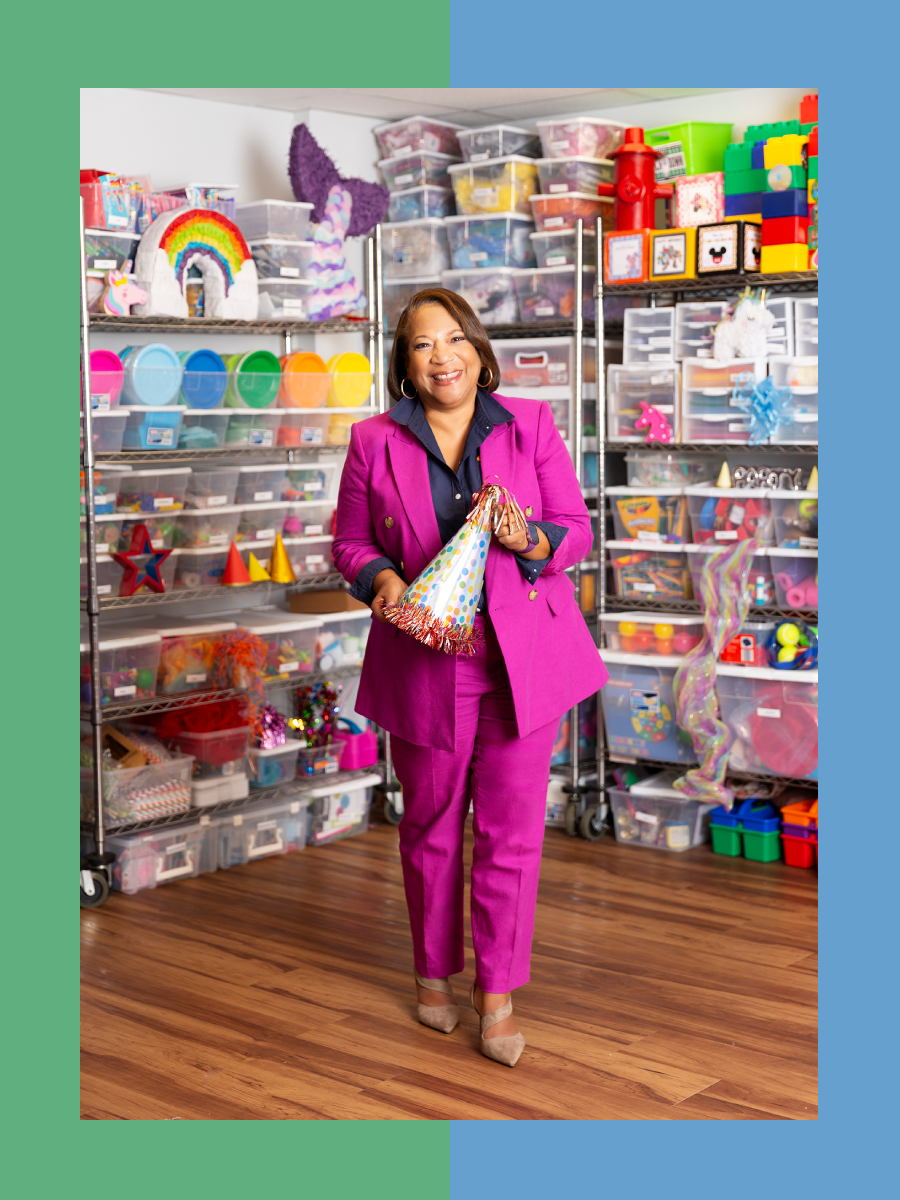
Growing up in DC, Schinnell Leake often saw her mother give cash she kept in her car’s glove compartment to people living on the street. That “blessing money,” as her mom called it, inspired Leake.
As a human-resources manager with a nonprofit, she coordinated her organization’s community-service efforts, which often revolved around the homeless. She noticed there was no shortage of charity for that community two days of the year—Thanksgiving and Christmas. She wanted to do more.
Another family tradition was fabulous birthday celebrations. Leake had thrown such magical ones for her two daughters that for years she had a side hustle as a party planner. She wondered: Could she recreate the splendor of those celebrations—parties that made children feel valued and special—in a homeless-shelter cafeteria?
In 2010, she approached one shelter with her idea and financed a party there herself. Then a second facility reached out. Leake tailored the festivities to each child’s wishes, from the theme to the cake to gifts. At one of those first parties, a ride-on toy that a three-year-old boy had requested needed assembling. “That’s when my husband became vice president of operations,” she jokes. As Leake left that party, she saw the birthday boy riding around outside, a balloon tied to his new tricycle and a giant smile on his face. “This is it,” she said to her husband. Her nonprofit, Extra-Ordinary Birthdays—offering personalized parties for children experiencing homelessness—was born.
In 2015, Leake left her HR job to pursue this passion full-time. With money from a L’Oréal Paris Women of Worth award, she moved her headquarters out of her basement and into office space in College Park, a Santa’s Workshop–like room filled with goody bags, helium tanks, and decorations for themes such as Frozen, Spiderman, or—currently making a comeback, she says—Hello Kitty.
Today, EOB serves eight area shelters, and Leake and her army of 50 volunteers have celebrated more than 1,600 kids. That’s not including other children at the shelter who attend the festivities and parents grateful for the sliver of normalcy, joy, and self-worth Leake brings to their kids.
“We’re giving them an incredible moment that, I feel in my bones, will impact them,” she says. “They will remember they were celebrated. They will know they are special, just like all of us.”
Back to Top
Elizabeth
Back to TopO’Donnell
Founder and CEO, Aaliyah in Action
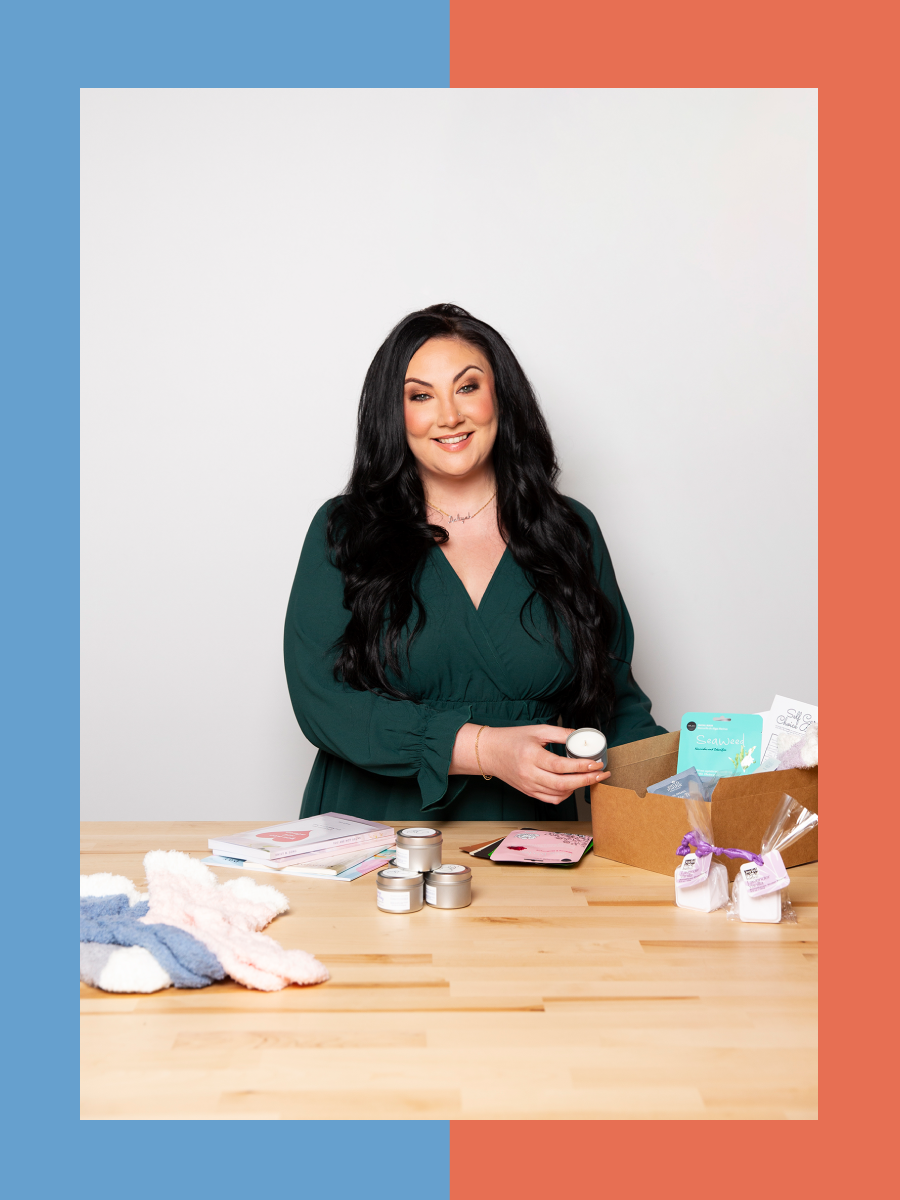
Elizabeth O’Donnell thought stillbirths were something out of the 1800s—not the experience of healthy women like her who took prenatal vitamins and attended Barre classes. But after her baby died in utero at 32 weeks in late 2020, O’Donnell had to figure out how to go on.
Adding to her grief, DC Public Schools informed the first-grade math teacher that it was revoking the paid family leave she’d been granted. Angry and still recovering physically, she posted about her situation on Instagram, prompting a flood of responses. The DC Council took note and passed an emergency bereavement bill granting two weeks of paid leave following a stillbirth.
The action was heartening but didn’t really dull her pain: “After you experience baby loss, you just feel numb.”
Friends sent the kinds of pampering items she always liked. They went untouched until one day, her face puffy from crying, she put on a cooling face mask that somehow pierced the numbness. It sparked an idea: self-care kits for women who have experienced a pregnancy loss.
She took the idea to George Washington University Hospital and, with gift money from her baby shower, assembled boxes with a face mask, fuzzy socks, a candle, a lavender shower steamer, and other comfort items, as well as a list of resources. “It’s for the person who needs to make it to tomorrow when, in all honesty, you might not want to make it to tomorrow,” she says. “A gentle hug from someone who knows the pain.”
Hospitals loved the idea, and soon O’Donnell was delivering packages throughout the Washing-ton area. She formed a nonprofit, Aaliyah in Action, named for the daughter she’d held for only an hour, and now ships or delivers boxes to 70 hospitals and birthing centers across the country—more than 2,000 packages to date, most of the items from women- and Black-owned local businesses.
All the while, she pressed for changes to the District’s family-leave policy, and in October 2021, the DC Council expanded it to include eight weeks of paid parental leave for stillbirths. O’Donnell is also active in stillbirth-prevention efforts and is pursuing a master’s in public health to step up her advocacy.
“This is my version of parenting,” she says. “I wish it was Aaliyah being here. But at least it’s her energy being channeled.”
This article appears in the January 2025 issue of Washingtonian.
